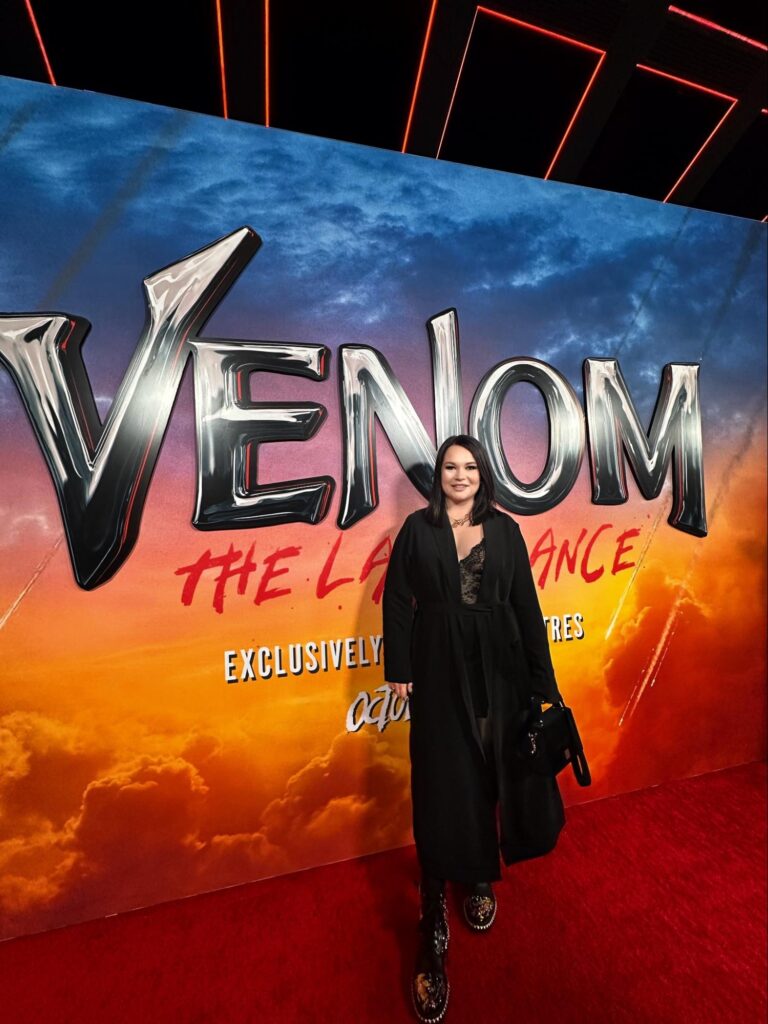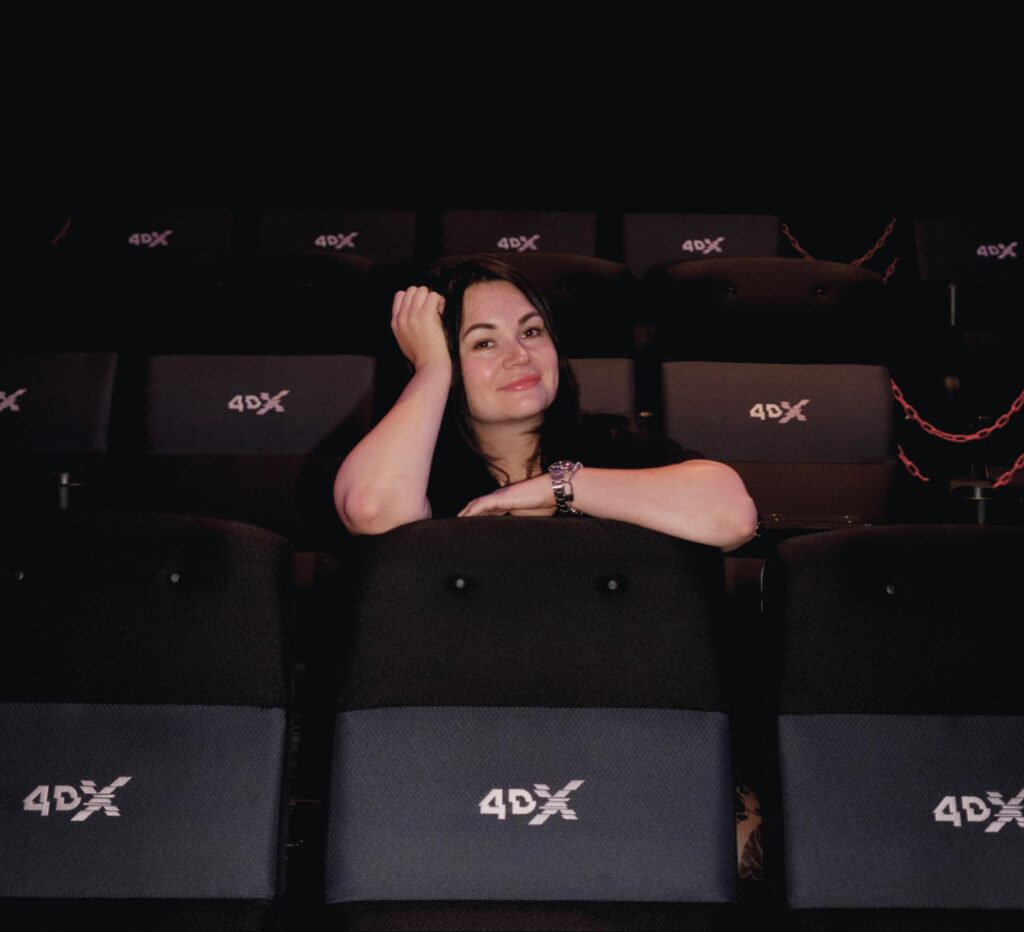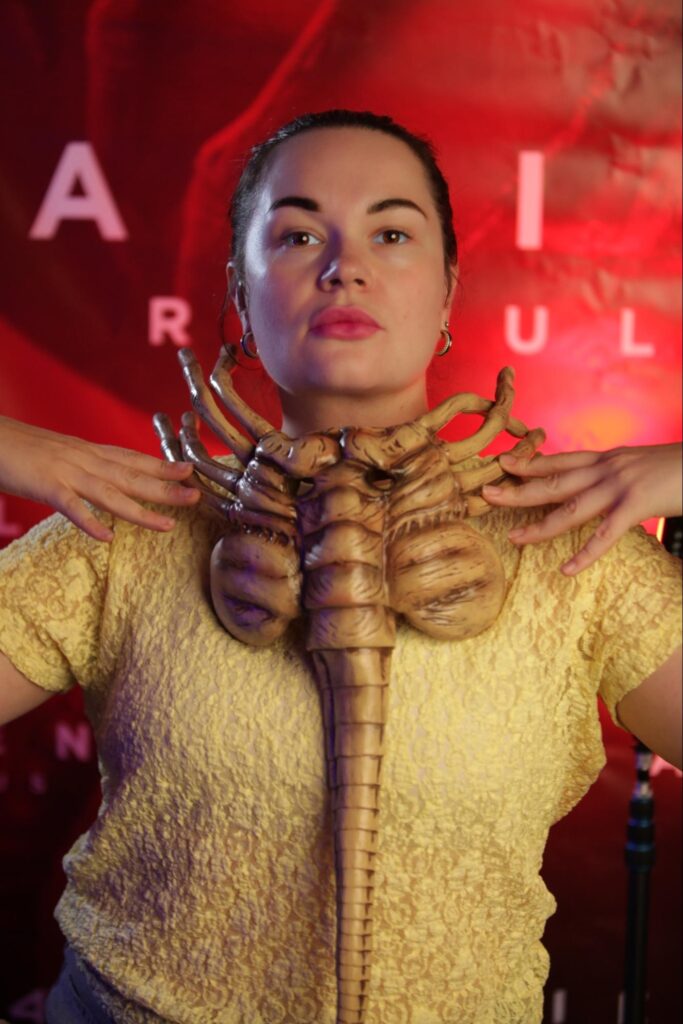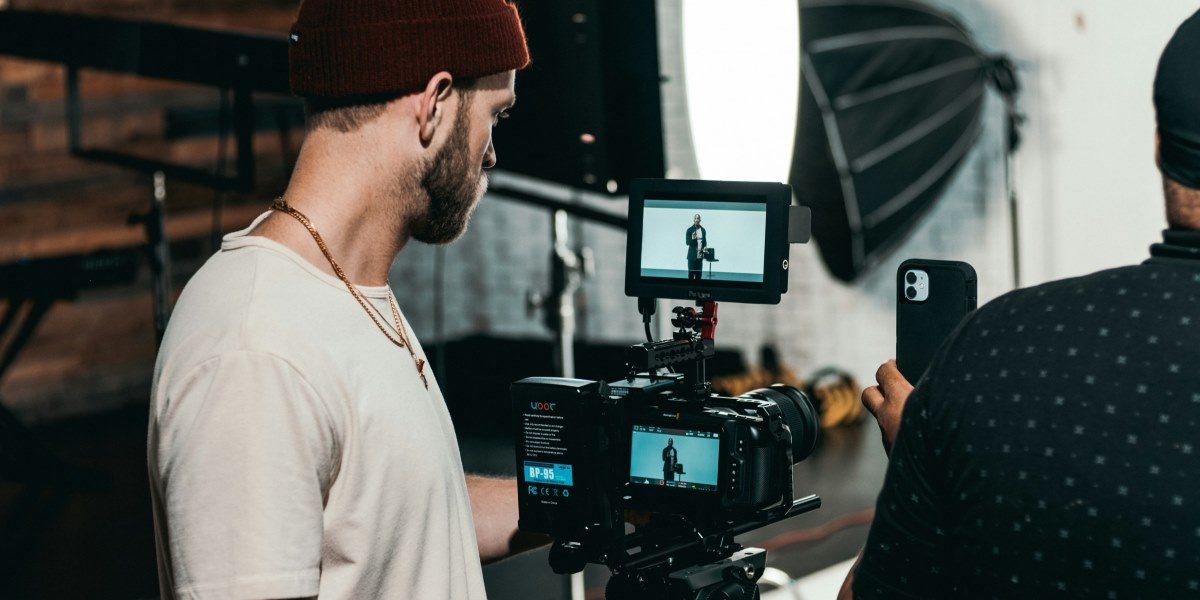“Movie marketing is more than just sales, it’s about creating experiences,” – says Maria Mercury, CEO of an influencer marketing agency, as she dives into the exciting world of film promotion.
Maria Mercury founded her own agency of experience, focused on promoting films through influencer marketing. By handpicking talented content creators for each movie premiere or specific film format, she plays a significant role in sparking audience interest and potentially boosting box office revenue. In our conversation, Maria shared which movie studios she works with, how she gathers up to 400 influencers in a single theater, and how marketing in the movie industry often differs from other sectors.
Maria’s photo archive
Q. Maria, you are the CEO of your own marketing agency that brings together talent and business. What does your role involve?
As the CEO of the marketing agency Xyz-a, I specialize in organizing events for upcoming movie releases to generate excitement and enhance awareness. I also partner with experts looking to build their personal brands and collaborate with businesses—both small and large—that require effective influencer marketing strategies or comprehensive digital marketing plans. My ultimate goal is to help businesses expand their reach while enabling individuals and brands to gain greater visibility in their industries.
Q. How did you start your professional journey in the American market?
I started by consulting and conducting corporate training sessions, working with companies to deliver lectures on digital marketing, storytelling, and copywriting—my areas of expertise. Over time, I expanded my services to include online programs for both myself and my clients. These experiences helped me recognize the growing importance of influencer marketing, which ultimately led me to establish my agency. This was a pivotal moment in my career, marking the shift from individual consulting to running a full-fledged agency.
Q. You’ve mentioned working as an influencer copywriter and Google Ads evaluator. Can you share more about that experience?
My journey in copywriting began long before social media platforms like Instagram introduced features such as Stories, Reels, or live videos. At that time, Instagram was focused solely on photos and text. I started as a copywriter for influencers in the Eastern European market, helping them craft compelling long-form content. These pieces often required detailed, lengthy narratives, making it physically demanding for influencers to write two to three posts a day.
I worked on everything from writing blogs and designing websites to creating commercial content, assisting brands and bloggers in building stronger personal brands through impactful storytelling.

Q. Why did you decide to create your own influencer, “Agency of Experiences“?
I’ve always been proactive about studying trends and their long-term impact. Over time, I realized that if I wanted to reach a larger audience and potentially drive significant sales, I needed to integrate influencers into the marketing strategy. Trustworthiness plays a key role in influencer marketing—people tend to trust influencers they admire. I saw this as an opportunity to bridge the gap for businesses, especially local ones, helping them become more recognizable and approachable to the public.
Q. Who are your clients?
My clientele spans major movie studios, local businesses, and personal brands. I’ve had the privilege of promoting films like Napoleon, Flight Risk, Mufasa, and Ghostbusters. Some of the projects I’ve managed have garnered hundreds of millions of views globally.
For movie promotions, the primary goal is to raise awareness about upcoming releases in specific formats or locations. For personal brands and smaller businesses, the objectives vary—some focus on driving sales, while others aim to go viral or build stronger community connections. Each campaign is tailored to meet the unique needs of the client.

Q. How do you select influencers for your campaigns?
Selecting the right influencers is crucial for a campaign’s success. We look for creative, original individuals who produce high-quality content, but the market is often saturated with repetitive, low-effort posts, making quality talent harder to find. We evaluate influencers based on their ability to generate fresh ideas, use professional lighting and staging, and demonstrate strong communication or acting skills.
For influencers from smaller towns, I provide detailed briefs and scripts to ensure clarity from concept to execution. We also tailor our approach to clients’ specific aesthetic and creative preferences while staying aligned with campaign goals.
Q. What are your most memorable screening events?
While all screenings are special, a few truly stand out. One of the most exciting campaigns I’ve worked on was for Twisters. The movie’s format, combined with the influencers we collaborated with, created a viral sensation. It exceeded expectations, stayed in theaters longer, and received significant recognition.
Another unforgettable event was the Inside Out screening for kids. This was my first time hosting an event specifically for children, and their joy was contagious! We had cookies, punch, and other treats for them, and seeing their happy faces made all the hard work worthwhile.
Q. How about collaborations with influencers? Which notable American influencers have you worked with so far?
Some of my most memorable collaborations include working with Tyler Conroy and Michel Park, who are incredibly talented. I also had a great experience working with Grant from a theme park and a few other creators who brought unique energy to the campaigns, like Michelle Park and Bianca Renee. These collaborations stand out because of their creativity and the tangible results they delivered.

Q. What are the key goals set by major movie studios for your agency?
For movies, it’s about raising awareness for a specific format in targeted locations, often working with local audiences and influencers. For personal brands and small businesses, goals may include driving sales, creating viral content, or exploring new trends.
Success means balancing engaging, appropriate, and shareable content. Whether generating buzz for a movie or boosting a local business’s visibility, each campaign is designed for measurable results.
Q. How does the process of organizing movie events work?
Organizing movie events is no easy task! Before the screening, we focus on planning and coordination—managing guest lists and ensuring influencers, creators, and participants understand their roles. Afterward, we measure impact through audience engagement, social media coverage, and buzz.
The biggest challenge is communication. For large events, I coordinate with hundreds, sometimes thousands, of people across multiple locations, making logistics tricky. In cities like LA or New York, no-shows are a common issue due to traffic, busy schedules, or lack of commitment, especially for unpaid events. While managing smaller gatherings of 100 people is easier, getting 400 influencers to one theater and ensuring they’re high-quality and engaged is a true adventure.
But in the end, it’s always worth it!
Q. How does marketing for the movie industry differ from other industries?
Interestingly, marketing for movies isn’t drastically different from other industries. Like any business, we focus on reaching a specific audience. However, what sets movies apart is the joy they bring. Marketing a film is fun and creative. It’s not just about selling a product—it’s about creating experiences and memories. In other industries, marketing campaigns can sometimes feel monotonous. But with movies, people are excited to participate simply because it’s a film-related project. That enthusiasm is something you don’t see in every field.
Q. How do you see the future of influencer marketing?
Influencer marketing is evolving rapidly. As the market becomes saturated with low-quality content, I predict brands will prioritize long-term collaborations with influencers who align with their values and deliver consistent results. In the movie industry, I foresee a shift toward campaigns that involve actors as influencers. For instance, actors creating catchy songs or viral trends, like in Wicked, will likely become more common. This kind of “employee-generated content” (EGC) is a growing trend, where even non-marketing employees contribute to campaigns. Soon, we might see professionals doubling as influencers—imagine an accountant who’s also a brand ambassador!
Q. How will AI influence the evolution of marketing?
AI has been a game-changer for my work. Tools like ChatGPT have made tasks such as drafting presentations, creating spreadsheets, and organizing schedules highly efficient. While AI handles repetitive tasks, I can focus on the creative aspects of campaigns. AI will help businesses optimize operations, but the creative aspect will always remain in the hands of talented people.
Published by Elle G.

















